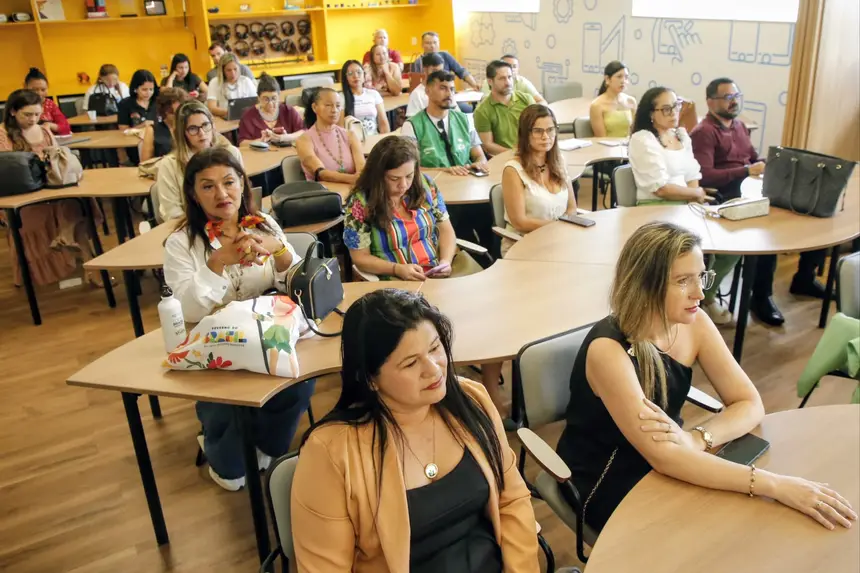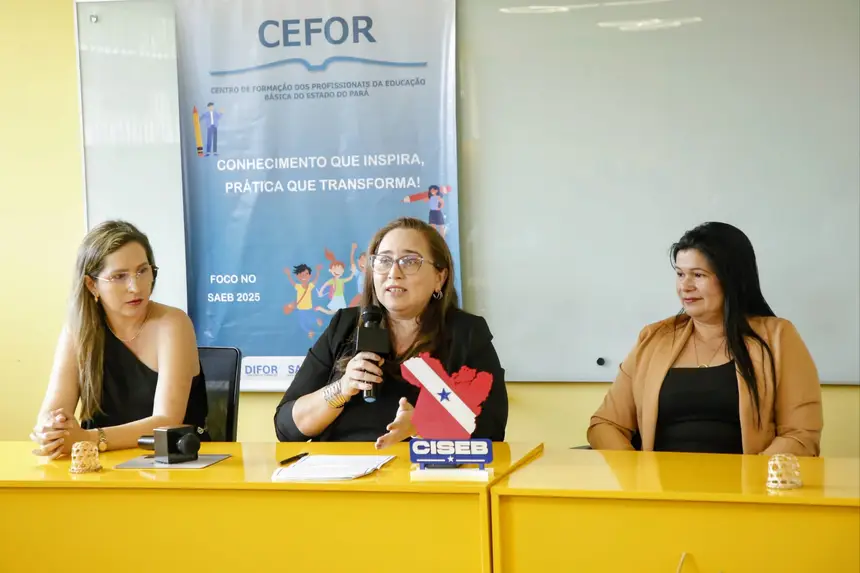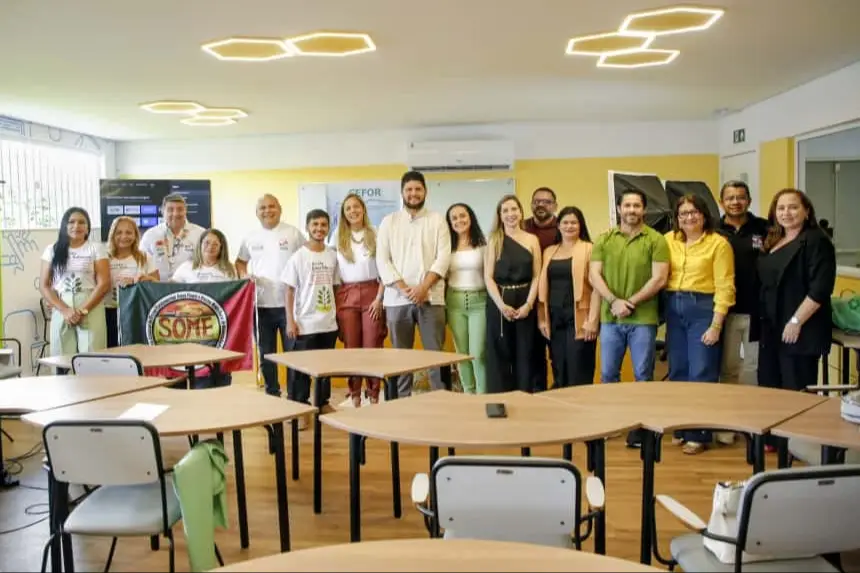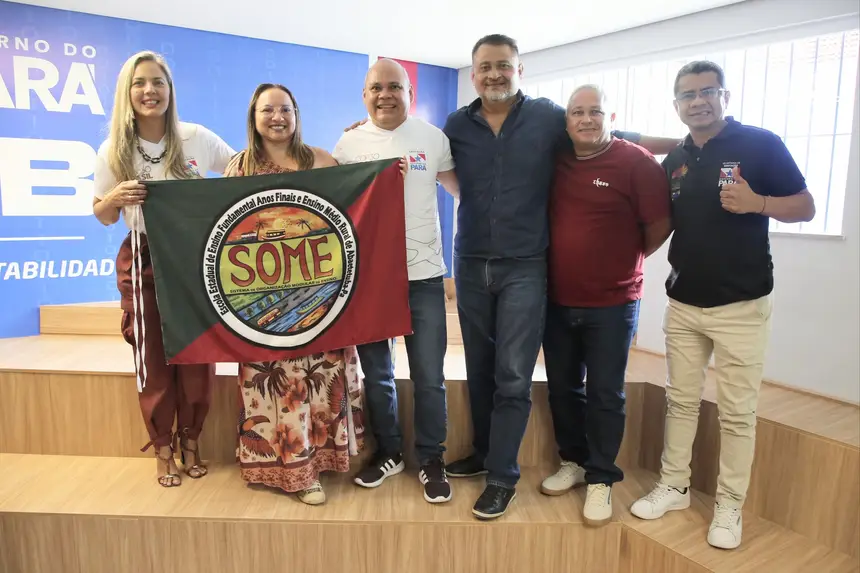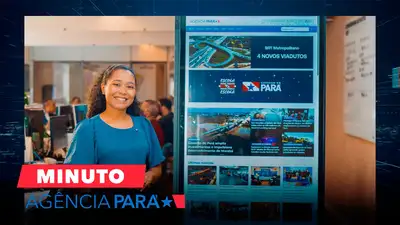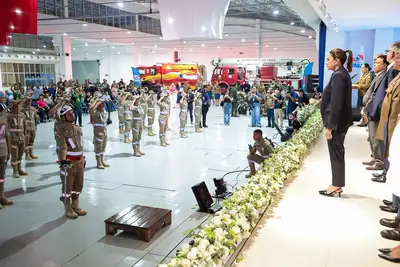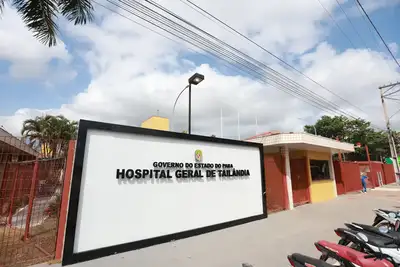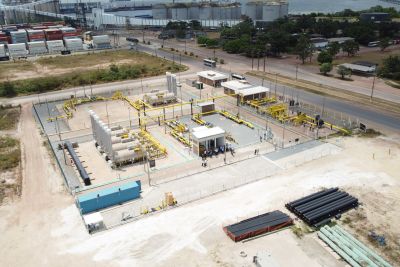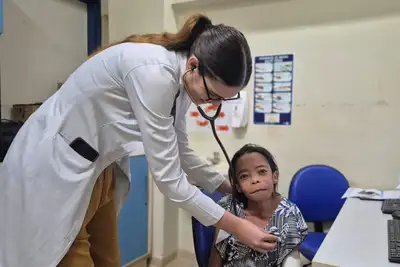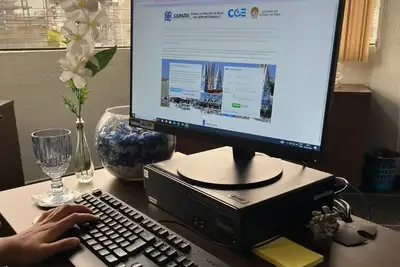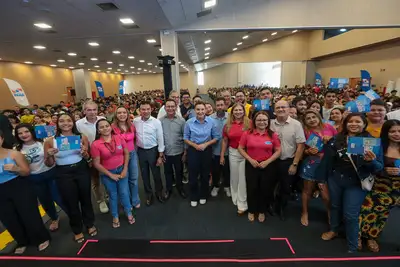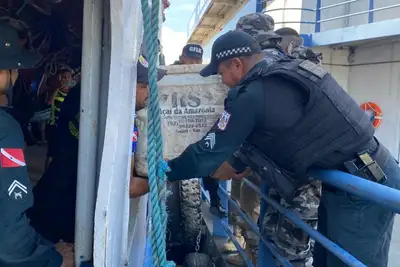Special edition of the magazine “Entre Saberes” highlights the State Policy for Education for the Environment, Sustainability, and Climate
The issue presents 12 reports and records of good pedagogical practices, aligned with the integral development of students and their protagonism
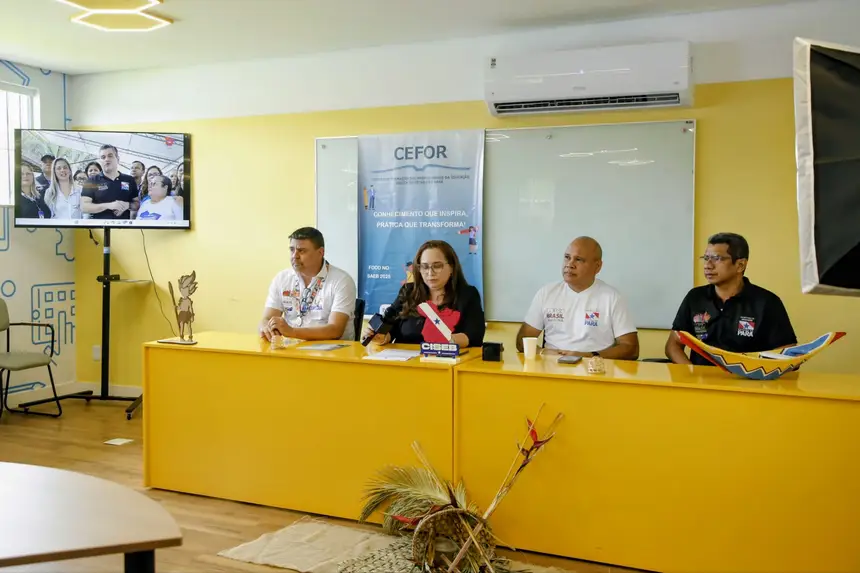
The State Department of Education (Seduc) launched, on the morning of this Wednesday (19), a special edition of the electronic magazine “Entre Saberes”. The launch event was attended by the Deputy Secretary of Basic Education of Seduc, Júlio Meireles; Professor Mauro Tavares, state coordinator of Education for the Environment, Sustainability, and Climate, and the director of the Center for Training of Basic Education Professionals of Pará (Cefor), Raimundo Oliveira.
Published online and biannually, the magazine is an initiative of Cefor that gathers successful pedagogical experiences, written by professionals from the state and municipal Basic Education network.
In reference to the United Nations Conference on Climate Change (COP30), held in Belém, the special edition was produced in partnership with the Iungo Institute and brought together a collective of teacher authors (from Elementary and High School) in the state and municipal schools of Pará to document their teaching practices and thus compose a special publication.
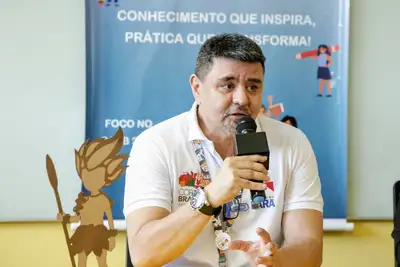
The Environmental Education coordinator, Mauro Tavares, explains that the material was built through training with educators in the environmental area and emphasizes the relevance of the issue as another important step for the theme in the State of Pará.
“It is worth noting that this special edition is a culmination of a formative process with the teachers who are at the forefront of the environmental education component. And in this special edition, we have a great novelty, which is the translation into Spanish and English of these twelve articles that the teachers constructed in partnership with the Iungo Institute and our state network. Therefore, it is an important milestone in the construction, I would say, in the solidification of environmental education in our State, especially by giving this protagonism to the teachers who are leading this process at the grassroots level, disseminating it in their schools, in their territories,” said Mauro.
The issue presents 12 reports and records of good pedagogical practices in environmental education, aligned with the integral development of students and their protagonism. This monitoring was based on the work with the curricular unit Environmental Education, Sustainability, and Climate and its specific materials.
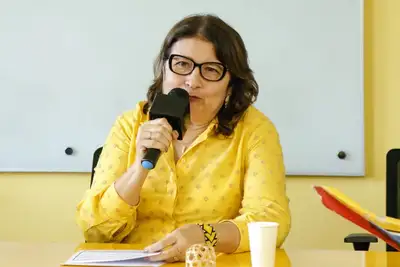
The testimonials reveal the importance of an education associated with community engagement to transform the environmental reality in our schools. Professor Nádia Brasil, one of the editors of the magazine, emphasizes the importance of the reports for the multiplication of knowledge and information focused on the climate theme.
“This special COP30 edition is the culmination of a formative process that has been occurring within the State Policy for Education for the Environment, Sustainability, and Climate, consisting of 12 reports of pedagogical practices developed by professionals from the Basic Education network of the State of Pará that reveal all the Amazonian environmental and cultural diversity and sustainability actions, which open pathways for meaningful learning and for its multiplication in the network,” said Nádia.
The set of this edition aims to stimulate innovative, critical, and sustainable reflections on the Amazon.


